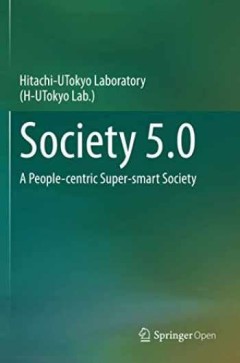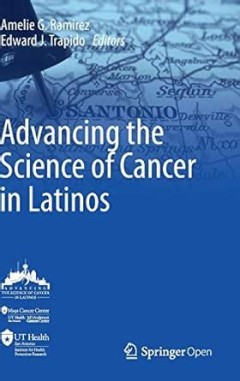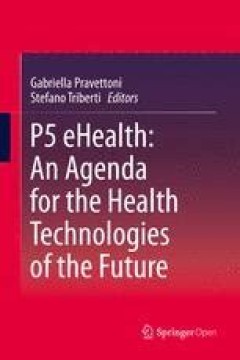Filter by

Society 5.0 = A People-centric Super-smart Society
This open access book introduces readers to the vision on future cities and urban lives in connection with “Society 5.0”, which was proposed in the 5th Basic Science and Technology Plan by Japan’s national government for a technology-based, human-centered society, emerging from the fourth industrial revolution. The respective chapters summarize the findings and suggestions of joint resear…
- Edition
- 1
- ISBN/ISSN
- 9789811529894
- Collation
- XX, 177 hlm; ill., lamp.,
- Series Title
- -
- Call Number
- -

Multilevel Modelling for Public Health and Health Services Research
This open access book is a practical introduction to multilevel modelling or multilevel analysis (MLA) – a statistical technique being increasingly used in public health and health services research. The authors begin with a compelling argument for the importance of researchers in these fields having an understanding of MLA to be able to judge not only the growing body of research that uses i…
- Edition
- 1
- ISBN/ISSN
- 9783030348014
- Collation
- XVII, 286 hlm; ill., lamp.,
- Series Title
- -
- Call Number
- -

An Overview of the Pre-suppression Society of Jesus in Spain: Brill's Researc…
In An Overview of the Pre-suppression Society of Jesus in Spain, Patricia W. Manning offers a survey of the Society of Jesus in Spain from its origins in Ignatius of Loyola’s early preaching to the aftereffects of its expulsion. Rather than nurture the nascent order, Loyola’s homeland was often ambivalent. His pre-Jesuit freelance sermonizing prompted investigations. The young Society confr…
- Edition
- -
- ISBN/ISSN
- 978-90-04-43431-8
- Collation
- -
- Series Title
- -
- Call Number
- -

The Vision Zero Handbook : Theory, Technology and Management for a Zero Casua…
This handbook provides a comprehensive treatment of Vision Zero, an innovative policy on public road safety developed in Sweden. Covering all the major topics of the subject, the book starts out with a thorough examination of the philosophy, ideas and principles behind Vision Zero. It looks at conditions for the effectiveness of the policy, principles of safety and responsibility as well as cri…
- Edition
- 1
- ISBN/ISSN
- 9783030231767
- Collation
- XX, 1240: ill; lamp
- Series Title
- -
- Call Number
- -

Adult Education Policy and the European Union: Theoretical and Methodological…
The European Union is now a key player in making lifelong learning and adult education policy: this is the first book to explore a range of theoretical and methodological perspectives researchers can use to investigate its role. Chapters by leading experts and younger scholars from across Europe and beyond cover the evolution of EU policies, the role of policy ‘actors’ in what is often seen…
- Edition
- Volume: 1
- ISBN/ISSN
- 9789462095489
- Collation
- -
- Series Title
- -
- Call Number
- -

Data Collection in Fragile States : Innovations from Africa and Beyond
‘This open access book addresses an urgent issue on which little organized information exists. It reflects experience in Africa but is highly relevant to other fragile states as well.’ —Constantine Michalopoulos, John Hopkins University, USA and former Director of Economic Policy and Co-ordination at the World Bank Fragile countries face a triple data challenge. Up-to-date information…
- Edition
- 1
- ISBN/ISSN
- 9783030251208
- Collation
- XXXI, 243 hlm; ill., lamp.,
- Series Title
- -
- Call Number
- -

Advancing the Science of Cancer in Latinos
This open access book gives an overview of the sessions, panel discussions, and outcomes of the Advancing the Science of Cancer in Latinos conference, held in February 2018 in San Antonio, Texas, USA, and hosted by the Mays Cancer Center and the Institute for Health Promotion Research at UT Health San Antonio. Latinos – the largest, youngest, and fastest-growing minority group in the Unite…
- Edition
- 1
- ISBN/ISSN
- 9783030292867
- Collation
- XVII, 329 hlm; ill., lamp.,
- Series Title
- -
- Call Number
- -

P5 eHealth: An Agenda for the Health Technologies of the Future
This open access volume focuses on the development of a P5 eHealth, or better, a methodological resource for developing the health technologies of the future, based on patients’ personal characteristics and needs as the fundamental guidelines for design. It provides practical guidelines and evidence based examples on how to design, implement, use and elevate new technologies for healthcare to…
- Edition
- 1
- ISBN/ISSN
- 9783030279943
- Collation
- XI, 189 hlm; ill., lamp.,
- Series Title
- -
- Call Number
- -

Systematic Reviews in Educational Research: Methodology, Perspectives and App…
In this open access edited volume, international researchers of the field describe and discuss the systematic review method in its application to research in education. Alongside fundamental methodical considerations, reflections and practice examples are included and provide an introduction and overview on systematic reviews in education research.; Open Access With contributions from internati…
- Edition
- 1
- ISBN/ISSN
- 978-3-658-27602-7
- Collation
- XXI, 161 hlm; ill., lamp.,
- Series Title
- -
- Call Number
- 373

iCity. Transformative Research for the Livable, Intelligent, and Sustainable …
Economy and society today face a multitude of complex challenges (“grand challenges”) like climate change, demographic change, urbanization, or digitalization, which create a constant demand for new technologies, services, business models, and consequently innovative solutions. In this light, the mobility sector has undergone a great change over the past few years, which is formed by di…
- Edition
- -
- ISBN/ISSN
- 9783030920968
- Collation
- XLI, 371
- Series Title
- -
- Call Number
- -
 Computer Science, Information & General Works
Computer Science, Information & General Works  Philosophy & Psychology
Philosophy & Psychology  Religion
Religion  Social Sciences
Social Sciences  Language
Language  Pure Science
Pure Science  Applied Sciences
Applied Sciences  Art & Recreation
Art & Recreation  Literature
Literature  History & Geography
History & Geography